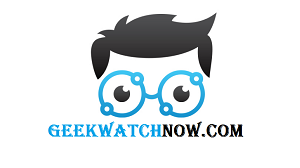Benefits Of Revenue Management Systems For Hotels
The dynamic economic environment necessitates one to keep a close check on rapid changes taking place. It is even more important for industries to realize the demand graphics in the micro and macro markets. Especially the travel and hotel industry has begun to be more aware of the market situation after the eternal impact of Covid-19 on this industry. Though it is not just about Covid, the hotel industry should monitor the changes in demand, market scenarios, and predictions very well because uncertainties are an unavoidable part of the tourism industry. In hotel management, revenue management is a key concept as it is the one on which the profits and profitability of the hotel depend.
Revenue Management helps hospitality business people to make decisions based on what can happen in the future and its possible impact. This helps to make informed and constructive decisions on how to make profits not only based on costs but also on competitiveness, fixed assets, and costs, internal and external environments, etc. A revenue management system, or RMS, is a software solution which provides software that provides income management services to hotels. With this, a hotelier gets to know how to sell its services at appropriate prices and keep the margins high. The revenue management tools provided by RMS help the hotel stay ahead of the curve. Here are some of the main benefits of the revenue management system for hotels:-
1. Integrated process automation
With RMS, hospitality businesses can automate almost all operations. This can integrate well with almost all other management systems. After atomization, employees do not have to make reports and collect calculation sheets. They can focus on critical analysis, make plans, and make decisions rather than collection jobs. This software tool collects most of the essential information and assembles it in an organized manner.
2. Better estimation and analysis
Revenue Management System, also known as the yield management system, gather past information from the connected hotel management system. Also, it holds the current tariff and returns record. This helps create an automatic estimation of changes in policies that are essential in terms of room price settings and other cost and revenue-related items. This provides appropriate tariff recommendations, adaptable policies, proper estimates of income, etc. When the past, present, and future situations are considered before taking decisions, better planning and its implementation follow thereafter.
3. Time and cost efficient
Collecting data and analyzing from computer-based software is more efficient in terms of time and costs than physically gathering and analyzing data. Employees must spend a lot of time and cost gathering past and present information and then estimate the future prediction plans. This software helps to produce data analysis reports at the end of the day without spending time or additional money. This channels resources to the more important field of critical thinking. Likewise, the cost of one-time setting this software is less than the routine maintenance costs of other methods.
4. Competition analysis
Not all other hotels in the industry equally impact one particular hotel negatively or positively. Some competitors are needed to create that healthy competition spirit. But analyzing that competition and its possible impacts should be done using a robust system. The RMS generates all information related to external sources and derives predictions on their basis and hence, specifies future actions based on them. Keeping an eye on the other participants in the hotel industry is essential for a firm’s success. Doing this with a strong system continuously monitoring others’ policies is quite helpful.
5. Auto-generated yet modifiable
All information generated in the income management system is automatically created. There was no human role until then. But if you want to change some data or predictions in the future after very careful analysis, it is possible. Most other software does not allow modifications in the data produced automatically but RMS allows users to make changes wherever it is necessary. This is important to overcome one of the wrong data that may be used in software or add new information that has not yet entered the software knowledge.
6. Balancing the total revenue
Hotels not only need to focus on revenue for the current period but also look at the total income generated over the years and if it includes all costs or not. Hotel service prices should not only cover costs but must also be affordable for customers to attract strong demand from the right customers. Taking into account all factors such as ideal room rates, ideal costs of other services, competition rates in your area, types of competition, consumer demand charts, etc., income management systems help not only short -term short -term costs but also long-term fixed costs. This helps in balancing the total hotel revenue for a few moments.
7. Helps in market division
Market division means identifying various elements of the market and classifying them. It also includes classifying various types of customers and visitors of the hotel. It is essential as the needs and demands of each group are different. They have different expectations which can be fulfilled only if the type of a customer is known. When the market has been properly segmented, a hotelier can tailor customized promoting efforts to attract a strong consumer base. This software gathers lots of visitor information which is then used to fragment and classify the type of visitors.
Thus, a Revenue Management System is very important for the success of hotels in the market that continues to grow and become more dynamic today. The internal and external business environment continues to constantly change at this time. This requires hospitality business people to see in-depth changes and develop policies and plans after a comprehensive examination. RMS reduces such workloads and helps to easily sail through the challenges of running a successful hotel. To consider and act precisely following the preferences of transformation and patterns of consumer demand, the revenue management system is important. If someone plans to increase their hotel revenue without much investment, a good yield management system is a solution for them!

